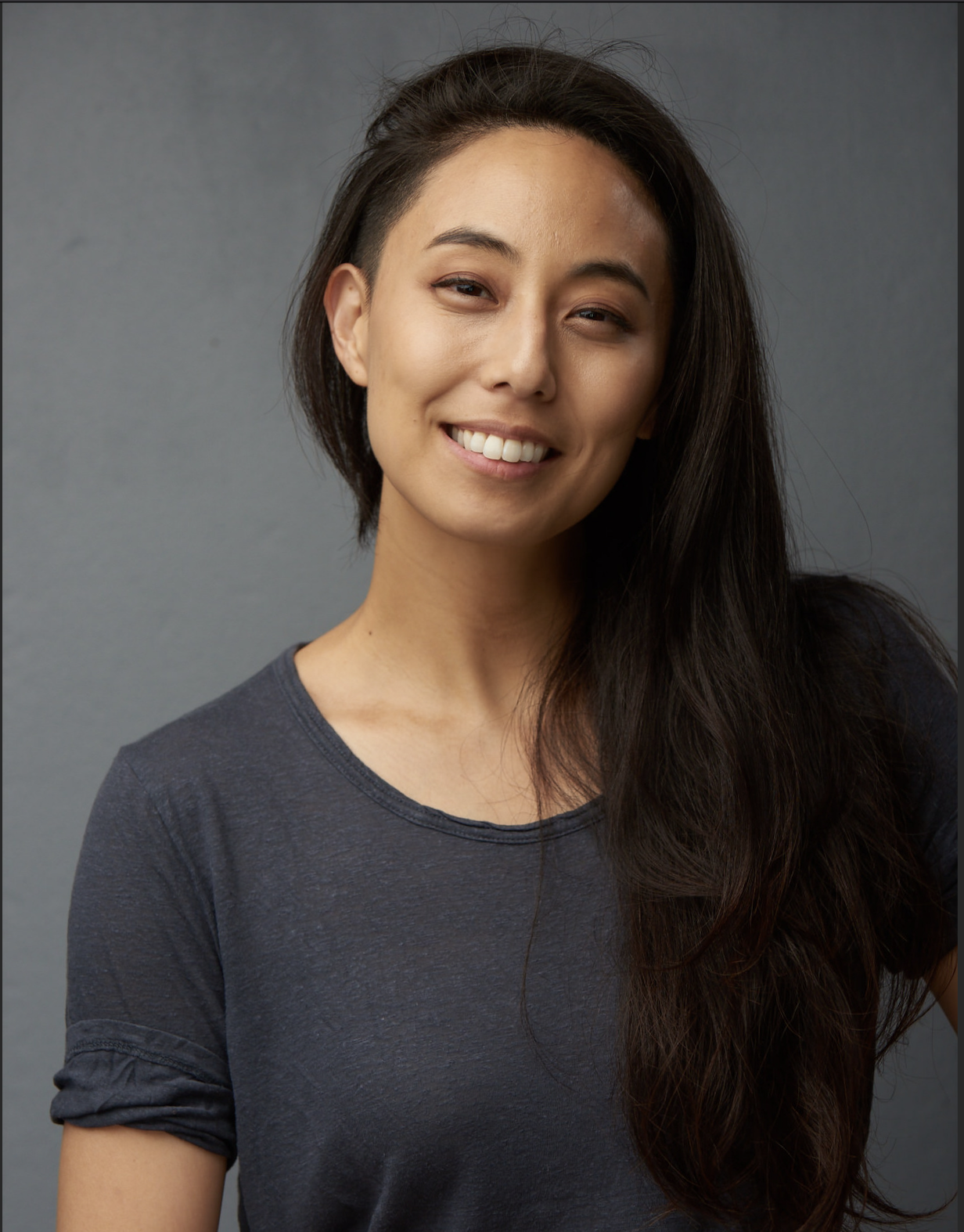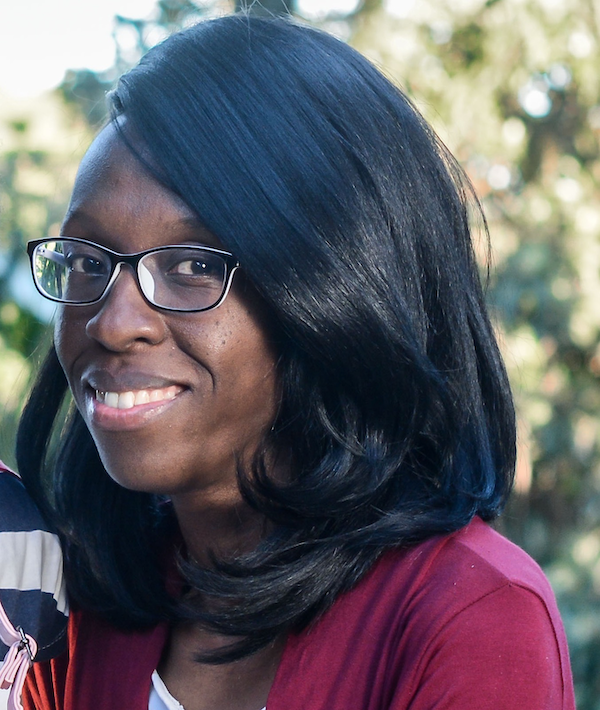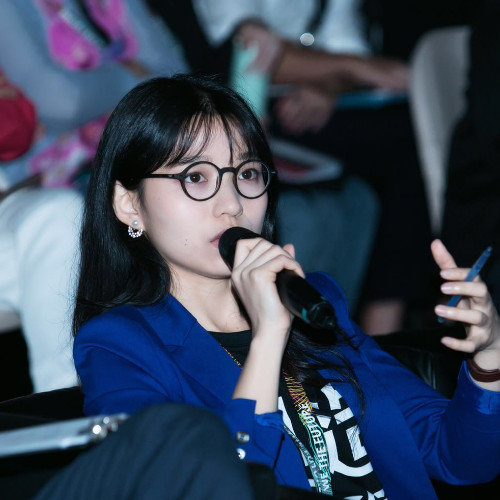How They Made It is an interview series that focuses on indie creators, exploring how they got their start and how their shows and practices have evolved since then. We hope you find inspiration in them for your own creative projects.
If there’s an indie creator who’s hit it big that you think we should feature, send an email to ashley@descript.com.
James Kim’s life in audio began in an unlikely location: the production office of a reality television show. “I just looked at legal forms; I had to make sure that the signatures were in the right place, and that they matched,” he explains now. “My boss was like, ‘This is a boring job. I don't care if you listen to something.’ She gave me a recommendation: a website called ListenToAMovie.com.”
“Before that, I was familiar with public radio,” he continues. James had even worked at a local Los Angeles station for a while. But he had had trouble finding jobs in the field, which was how he ended up filing consent forms. At that point, he was pretty disenchanted with the idea of audio.
But then, “I exhausted the list of ListenToAMovie, and I went into Apple Podcasts,” he says. “That's when I discovered shows like Love and Radio. I was obsessed with the stuff coming out of Australia. There’s a show called Paper Radio; it was both fiction and documentary. They were just breaking all these rules, and it was so exciting to me.”
Those shows reinvigorated James’ desire to make stuff, and soon after, he found himself in Marfa, Texas, working an internship and creating his first long-form podcast, There’s Something Out There, which covered locals’ seemingly endless ghost stories.
These days, James makes his own exciting, genre-bending and rule-breaking shows, including Moonface, which has been praised in The New York Times, The Washington Post, and by NPR, among other outlets. We talked to him about dealing with imposter syndrome and what he learned from teaching himself to write fiction.
This interview has been edited and condensed for length and clarity.
 |
How did you learn how to edit audio?
I’ve always been self taught. In college, I took a couple sound design courses, and they all use ProTools.
I remember they gave us an assignment: here is a commercial for, like, Nike with the sound stripped away. Our assignment was, you need to sound design this commercial. It was awesome. I got to figure out, oh, there's a plane that flies over. Don’t just use a stock plane sound design. You can combine a vacuum and a thunderstorm, and then pan the sound, and it will actually sound like a plane.
I got to continue my craft in public radio ‘cause they don't have funding. As interns, you do everything. There is no engineer to mix and master your piece, so you need to edit yourself, score it, do it all. That was another bootcamp of fear, but also like, f*ck it.
One of my biggest inspirations is like Spike Jonze. He went from being a photographer for skate magazines to getting an Oscar for writing and directing some of the most visually stunning films. Never ever went to film school. Just totally self taught.
After making There’s Something Out There, you started working at KPCC, an LA public radio station. Once you had a day job in audio, why were you still interested in making things for yourself on the side?
I always told myself, the stuff that you make from the heart, people can really tell. And so even if I were to have a full time job, I need to be satisfied artistically. Because otherwise I feared that I would stall creatively and and just not get any better.
I'm always trying to improve myself and improve my skills. I have huge imposter syndrome. I feel like everyone does; the way I respond to it is just constantly trying to perfect my craft.
How do you balance having a day job in audio and doing your own stuff on the side now?
I'm not going to lie, I hit a breaking point where I wasn't sure if I wanted to continue. And the reason I got burnt out was because I went all in on my original ideas. I was working on three, maybe four of my original ideas simultaneously. And it was exhausting.
I got to a point in my career where people were saying yes, finally, and being like, “We'll give you money. Go and work.” But every show has its own stressor, and to collapse them all together made it incredibly difficult.
The lesson I learned was: balance. I really did think that I could just make a career doing my own original stuff. I think that's true in other forms. I don't know how true it is in podcasting, because people just don't pay a living wage for original ideas and for original work. They just don't.
Now I’m going back to the model of having a somewhat stable gig, and then doing my creative stuff outside of that gig. Taking it step by step and focusing on one project, and hopefully one gig. Inching forward that way.
It’s tough, going at it on your own and outside of the system. There's a lot of benefits to it, but you have to know yourself really well in order to function. It's great to have creative freedom or do your own thing: I can go on a walk when I want. But at the same time, that kind of freedom then requires me to be like, well, but I’m the person that's paying for my health insurance. So you better know what your plan is. For me, at the end of the day, it's problems that are worth having, versus going back and into the system that I was in before.
It also requires deep conviction in your ideas. Like if you don’t believe in what you’re making, it becomes, why am I making all of these sacrifices?
That’s such an important ingredient to the whole idea of doing it yourself. It sounds so obvious, but if you do not have confidence in yourself, you're setting yourself up for failure.
 |
How was writing Moonface, which is fiction, different from the non-fiction podcasts you’d done previously?
The thing that was really eye opening to me in fiction was the amount of time you spend thinking and outlining. In radio, you get tape, you dive into the tape. You start writing around that tape, and then you present it, and you rejigger it from there.
In fiction, you need to have a really strong foundation before you jump in and start writing a story. You’ve got to make sure that it works on all sides. And the way to do that is through outlining, because it's a lot easier to move bullet points.
Going back into the documentary space, I tried to inject the stuff that I learned in fiction. Like, I got to read books on story structure. With documentaries, you can kind of get lost in the tape and go, “I don't know where the story is.” But when you have these basic foundations, things start to start to click a lot more, and people can get on the same page faster.
The last thing I’ll say is that fiction requires a lot of people to make it, and there's so many people that need to be on the same page. Otherwise, it's utter confusion. And so constant communication was something that I hadn’t necessarily had to do in non-fiction podcasting, because the teams are much smaller. But coming back to it, that level of communication and detail from fiction, I think greatly benefits the documentary space.
What’s your technical setup like?
I have a few microphones that I use. If I need to do voiceover stuff, or do interviews or whatever, it’s an [ElectroVoice] RE320. That's the dynamic microphone; I chose that one cause you don't have to plug it in like a condenser. And then I usually use a Cloudlifter that will block out noise and amplify the sound.
I also have a shotgun microphone for when I go out into the field, a Sennheiser MKH 416. It’s a bit pricey. I bought it mainly for audio fiction stuff, to be experimental.
Then I have another handheld shotgun microphone they used at Gimlet; I bought that one for in the field recordings that I do for documentaries. And I have two [ElectroVoice] RE-50’s — that's if we're doing an interview outside and it’s stationary, it's an easy setup.
How do you think about building an audience for your shows?
Moonface was the first show where I deliberately thought of other people outside of myself. Everything else was for me and for my friends, and just to have fun. But Moonface was like, I'm putting in my own money. I really need to think of a way to make sure that it counts.
And so I looked at what A24 was doing, with how they're marketing their films, and other indie companies like Searchlight. I was like, the audience that I want is people who really like indie cinema. So I'm just going to mimic the approach that these other companies have, obviously with zero marketing budget.
How do you do that? The biggest thing for me was the trailer. That's the thing that makes me decide, personally, if I'm going to watch a film. I always thought with audio trailers, they never fully hooked me. So I decided to do the video trailer route. It wasn't as common at the time to release a video trailer in 2019.
I gotta say, when I released Moonface, that to me felt like maybe one of the last times that a truly independent show could get a lot of attention. I think the space now, especially during the pandemic, it's blossomed into something where a lot of people have podcasts. And when you’re trying to occupy the same space and attention as people who are dating Taylor Swift, it's really hard.
Do you have any tips for a beginning podcaster?
I would say before you even start, ask yourself, what is it that you actually want to achieve? That will dictate so much. Like for me with Moonface, I was exhausted by pitching shows and never was getting a yes in the room.
So I wanted to make a show that wasn't going to make money, but was going to get me attention. Obviously, I did Moonface for other reasons. There's things that I wanted to say with it, and a story that I've been dying to tell. But I also wanted to be smart.
I had a list of things: this is what needs to be done if I wanted to be noticed in the industry. It dictated the scale. I took out a loan, made it a bigger budget. Tried to reach people that I've never worked with that are famous, and feel very intimidating to me.
I never saw podcasting as a way for me to make money, because I got into public radio knowing that they paid so little. What attracted me was the artistry. I always think of any project I make as, it's just to make it a bit easier for me to make the next one.
My last piece of advice is: find people who are successful at what you want to do. Find shows, find individuals. Consume their work. Consume everything they've done — even interviews. And just try to understand as much as possible, and learn from that. Use that as your training.






%20(1).JPG)


























